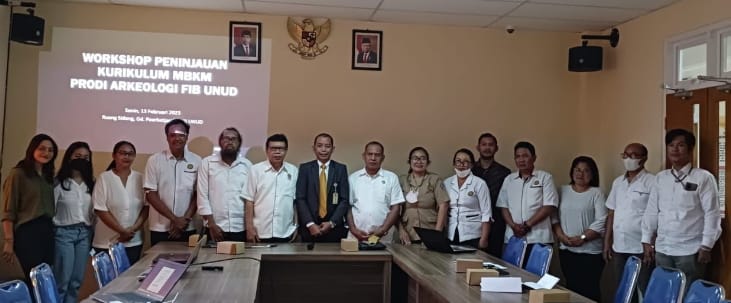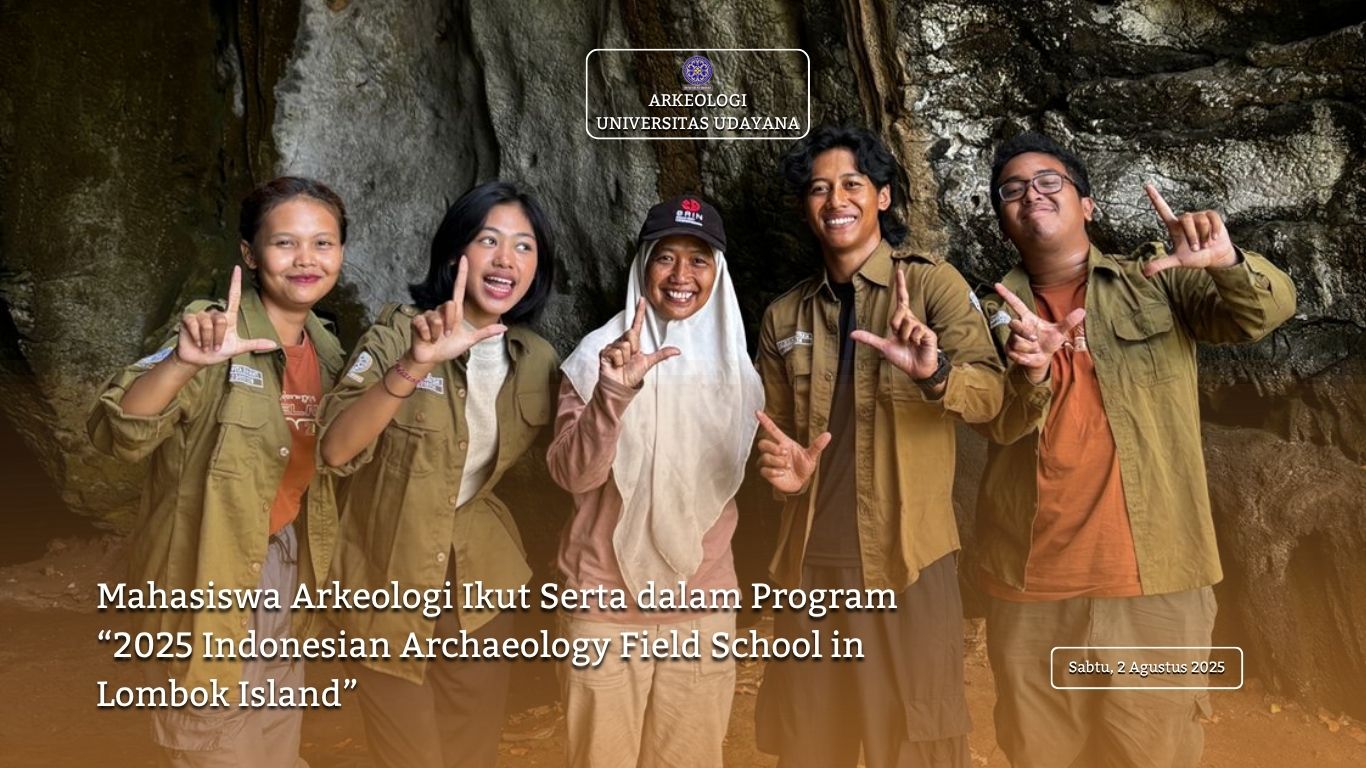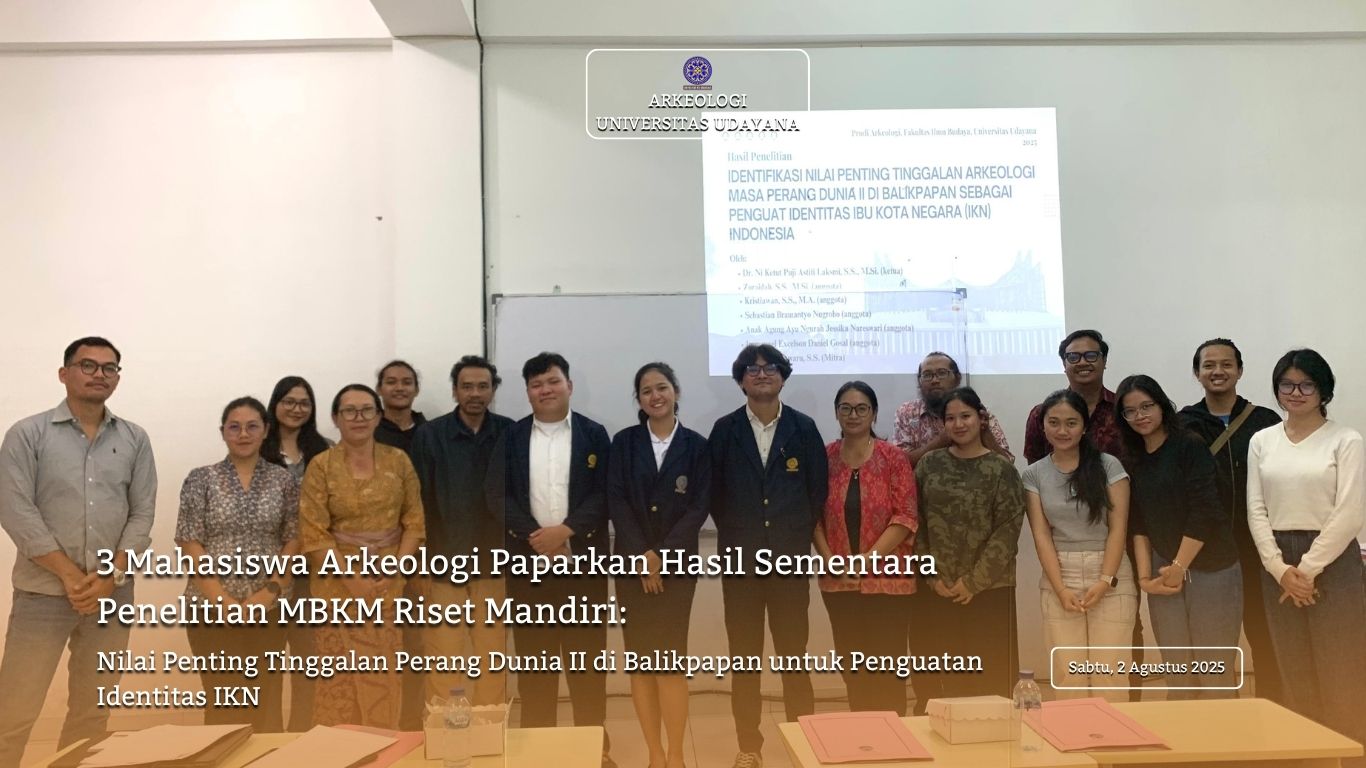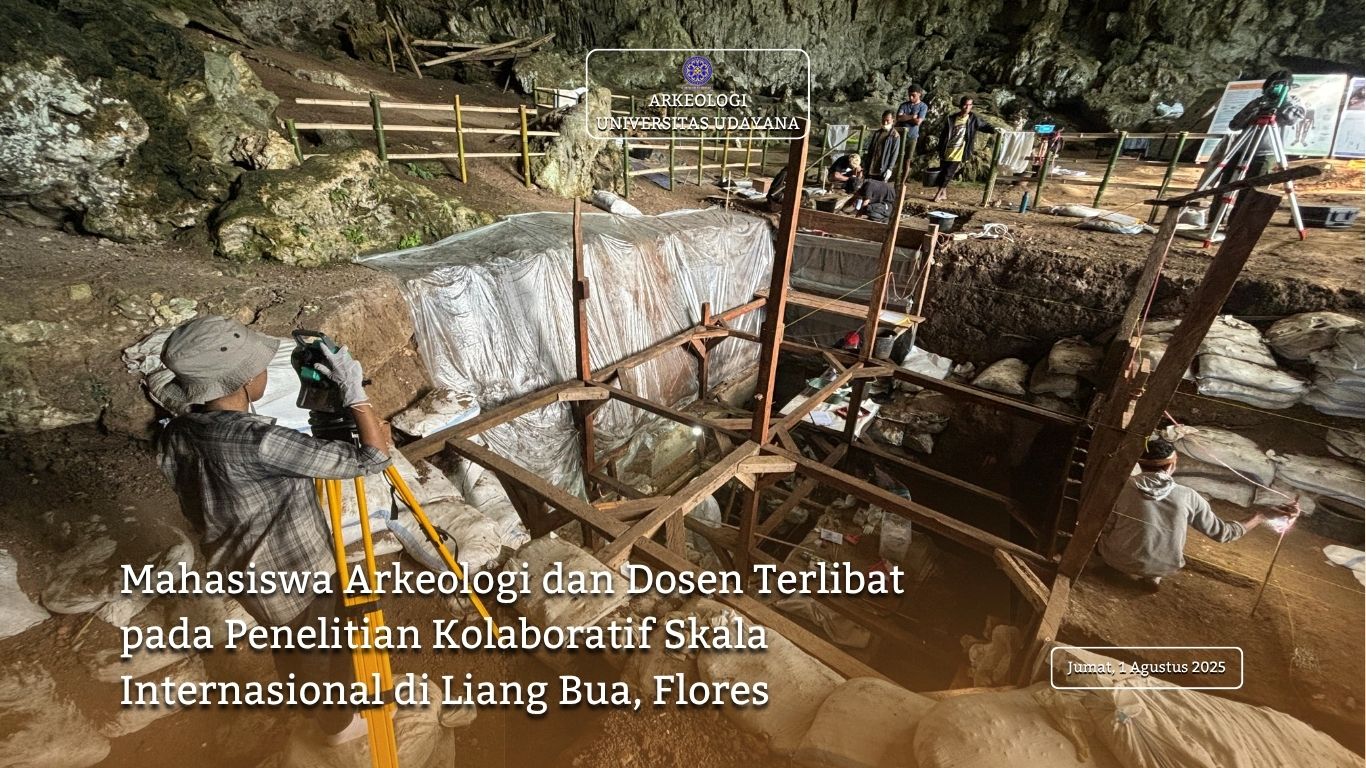ARCHEOLOGY FACULTY OF CULTURAL SCIENCES STUDY PROGRAM WORKSHOP REVIEW OF CURRICULUM OF UDAYANA UNIVERSITY
Denpasar – The Archeology Study Program held a Curriculum Review Workshop which was attended by the Dean of FIB, Head of UP3M, Lecturers of the Archeology Study Program, Stakeholders, Alumni and students. The workshop takes place in a hybrid manner, using Webex application while offline it was taking place in the Poerbatjaraka Meeting Room of the Faculty of Cultural Sciences, Udayana University, Monday (13 February 2023). The workshop presented two resource persons from LP3M Udayana University namely Prof. Dr. Ir. G.P. Ganda Putra, MP and resource persons from the Department of Archeology FIB UNHAS namely Dr. Yadi Mulyadi, S.S., M.
The workshop was opened by Deputy Dean 1 of the Faculty of Cultural Sciences, Udayana University I Nyoman Aryawibawa, S.S., M.A., Ph.D. In his remarks, Vice Dean 1 said that the curriculum must be flexible in accordance with the needs of the world of work, which must be ready to compete in the global market.
Prof. Dr. Ir. G.P. Ganda Putra, M.P. in his presentation explained about the preparation of the curriculum in the implementation of an independent learning-free campus (MBKM). The Higher Education Curriculum is a program to produce graduates, so that graduates have qualifications equivalent to the qualifications agreed upon in the IQF. This ability of graduates is referred to as graduate learning outcomes (CPL). It was also explained that in the implementation of MBKM, students have the right to study three (3) semesters outside of the study program. So that the compiled curriculum should be able to support the implementation of the MBKM program while still being based on the development of science and technology (scientific vision) and job demands (market signals).
The second resource person, namely Dr. Yadi Mulyadi, S.S., M.A. in the material describes the MBKM curriculum implemented in the UNHAS Archeology Undergraduate Study Program, which includes graduate profiles, learning outcomes, study materials, curriculum structure, and curriculum maps. Material from UNHAS provides an overview of the applicable curriculum in similar study programs.
Graduate users, as well as alumni who had the opportunity to attend, included BRIN (DRS. I Gusti Made Suarbhawa), Head of the XV Region Cultural Preservation Center (Abi Kusno, S.Hum., MEM.), and the Bali State Museum (Dewa Ayu Eka Mayadewi, S.S., M.Si.). On this occasion the users of graduates said that there must be synergy between study programs and users of graduates in the preparation of the curriculum, this aims to adapt the abilities of graduates to the needs of the world of work. The input and suggestions provided by graduates and alumni users in this activity are very important to improve the quality of study programs and graduates. It is hoped that graduates of the Archeology Study Program FIB UNUD will have more competitiveness.




FACULTY OF HUMANITIES